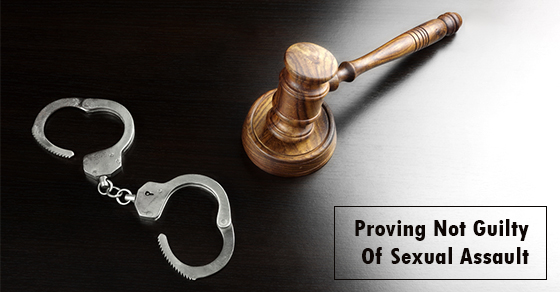Ten Reasons Why It is Getting Harder to be Found Not Guilty in Sexual Assault Cases

Anyone can be charged with rape; it only takes a statement by a complainant motivated to report to the police. And because sexual assault is a “zero tolerance” offence, it will be prosecuted to the full extent of the law. The Crown will not compromise. Jail sentences upon conviction are the norm, and the effects of the sex offender registry and ancillary orders can result in permanent job loss, travel bans, and barriers to rent and financing. To say that “your life is over” if you are convicted of sexual assault is not just a figure of speech.
That is why the standard of proof in a criminal case is high. The Charter of Rights and our thousand-year old tradition of the English common law enshrine this standard to ensure that citizens are not wrongfully convicted and their liberty forfeited. But that standard means that sometimes people whom the public believe to be guilty will go free.
There has been much discussion in the media lately about sexual assault. The Jian Ghomeshi trial was a showcase as to how the system works in actual practice. Activists took over the debate to proclaim that the system is rigged and unfair to women, who are called “survivors” and deemed to always be telling the truth.
While there are problems with the system we have, we need to remember that the trial process is about determining guilt or innocence. As the Supreme Court of Canada has said, “a trial is not a tea party”. Uncomfortable questions get asked. Accusations are made and challenged. Credibility is attacked. It is only if you assume that a complainant is always truthful that you will believe that the system is unfair or abusive to (mostly) female complainants.
It is not easy to be acquitted of sexual assault anymore. It used to be that old white male judges with little appreciation of the experience of women would decide these cases. It used to be that women were not believed without independent evidence or corroboration. That is no longer the case, and for good reason. There are many changes that have made the process more fair for complainants, and limit the risk to them of being abused, mistreated, and subject to untenable myths and stereotypes.
These changes make it harder for a defendant to be found Not Guilty. Here are ten reasons why:
- The judiciary is younger and more gender-balanced than ever before. Judges now bring a more appropriate understanding of a woman’s experience into the courtroom;
- Judges get more education and training than they did in the past;
- Scrutiny by appeal courts, the media, activists, and judicial oversight bodies deter judges from being unfairly biased or sexist. Of course it still happens, but it happens less and it gets noticed more often;
- Parliament has placed very strict limits on cross-examination by defence lawyers. And self-represented litigants are not permitted to cross-examine complainants at all;
- Parliament has put in place tough and difficult hurdles to view private records (medical, counselling, Children’s Aid, family court) even where they might be helpful in defending the case. Complex and expensive motions are required to even try get access to these materials;
- The government continues to make it more difficult to defend sexual assault cases, and their newly introduced Bill C-51 plans to require defendants to disclose some of their most important evidence to the Crown in advance of the trial. This erodes one of the most important protections a defendant has;
- A complainant’s sexual history is completely off limits, even where the sex is with the same defendant and where that sex is directly relevant to the defence. A complex and expensive application is required in advance of trial to seek permission to ask even a few basic questions;
- When a complainant or witness has had multiple run-ins with the law, or is the subject of multiple “police occurrences”, the defence is no longer entitled to access this information without a complex and expensive pretrial application. Such occurrences could have a direct impact on the credibility of a witness, but are now considered “private”;
- When a defence lawyer gets testy or impatient with a witness, or demeans a witness, that lawyer is undermining his client’s defence, because a judge will admonish the lawyer, and step in to defend the integrity of the witness. “Beating up the witness” is not a useful defence tactic, it is a quick way to sabotage your client’s case and lose any sympathy your client might have with a judge or jury;
- Because of changes to the law; media scrutiny; judges being disciplined; and the overall societal view of these cases, judges are now more careful than ever about acquitting a defendant charged with sexual assault. In the past, the court would be most concerned about wrongful convictions, and would subject the evidence of a complainant to very careful and cautious scrutiny. Now, the analysis seems to veer more towards looking for reasons why problems with a complainant’s evidence should be overlooked.
Some people believe that these changes represent long-overdue corrections to a system biased in favour of the accused. Others see this as a slippery slope that erodes the presumption on innocence, resulting in more wrongful convictions. Regardless of whether one sees these changes as being positive or negative, they do make sexual assault trial more complex, more expensive, and more difficult for the defendant to successfully challenge the allegations levied against him.

